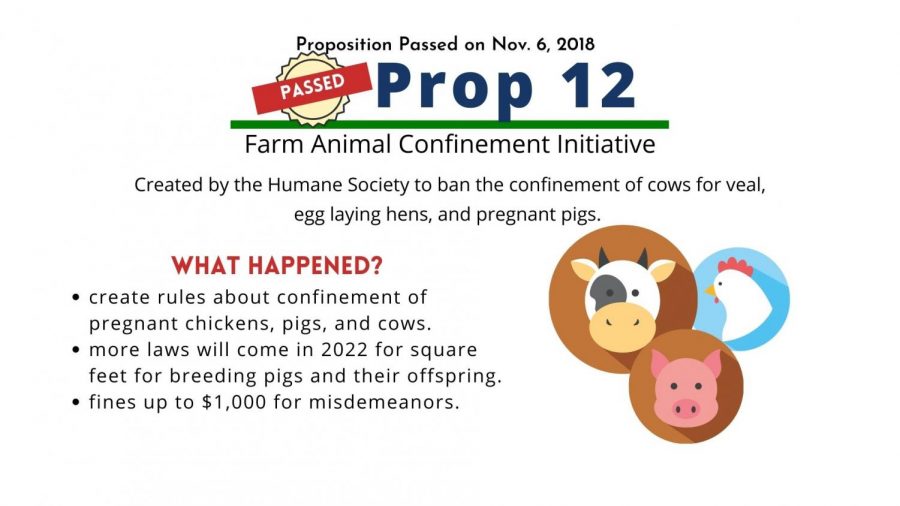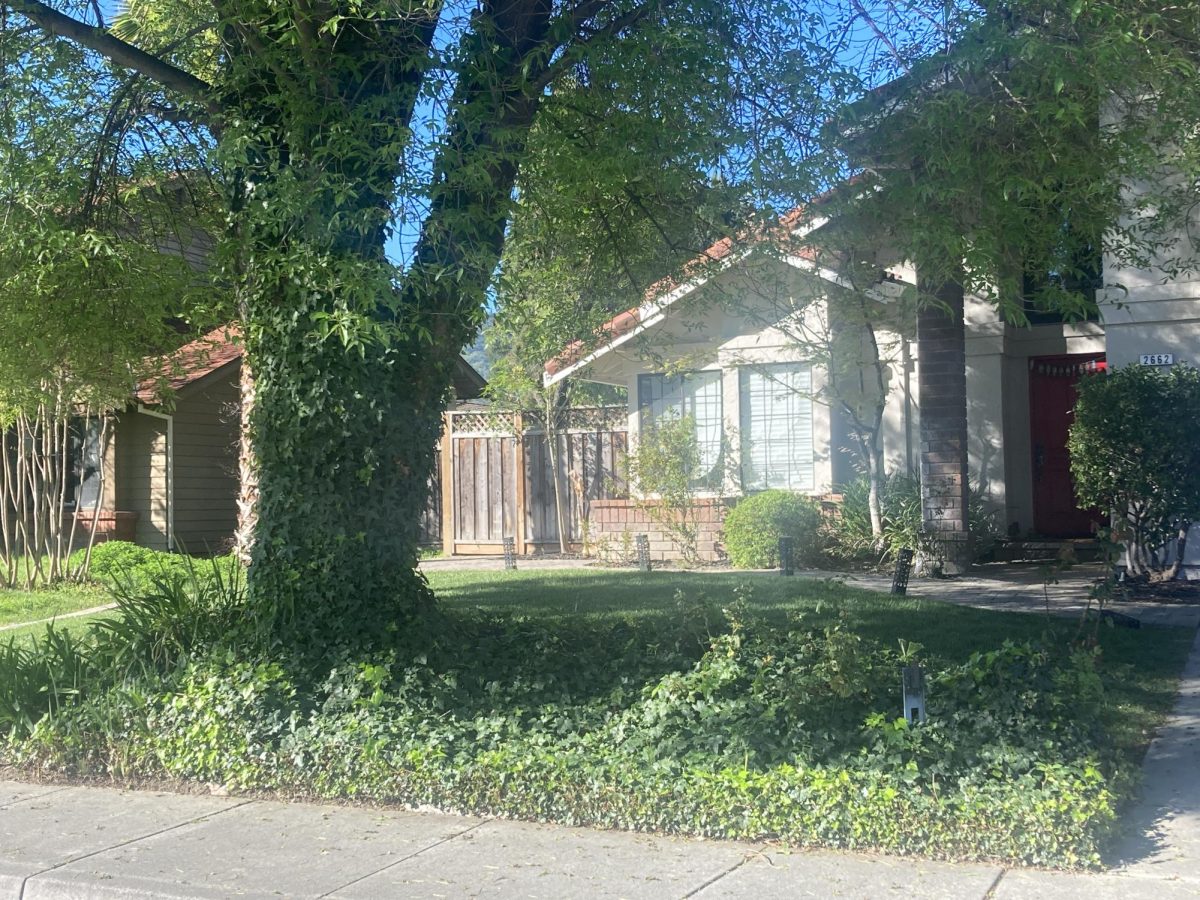Prop 12: Farm Animal Confinement Initiative
Proposition 12 limits the confinement of farm animals.
November 1, 2020
Proposition 12 was a ballot measure approved by voters in 2018. Proposition 12 established specific minimum requirements for confining certain farm animals. It also prohibited the sale of meat and egg products from animals confined in a non-complying manner. Enforcing this measure could cost up to 10 million state dollars.
Back in 2008, The Humane Society seeked to ban the confinement of pregnant pigs, calves raised for veal, and egg-laying hens. Titled Proposition 2, the measure passed. However, Proposition 2 did not provide a specific requirement for the amount of square feet needed for an animal.
In 2018, Proposition 12 provided numbers that the local government could enforce.
Pros
Proponents of prop 12 argued that the confinement of a baby calf or a mother pig in a small cage was cruel. Raising the animals in cages could threaten food safety.
“Animals should have a larger space and have the ability to roam free instead of being kept in cages stacked on top of each other,” said Aria Spaulding (‘21).
Cons
The opponents of Proposition 12 argued that it would sell-out the egg industry. A “no” vote on Proposition 12 would have kept regulations the same as they were in 2015, when Proposition 2 went into effect. Back in 2015, Californians voted to ban raising animals in cages. However, no exact number was given for the minimum amount of space an animal needed.
Voting results
With a vote of 62.6% YES and 37.3% NO, Proposition 12 passed in 2018.
Beginning January 1st of this year, farmers were required to provide at least 43 square feet of floor space per calf, and 144 square inches of space per hen. Starting in 2022, Proposition 12 will require farmers to provide at least 24 square feet of usable floor space per pig.






